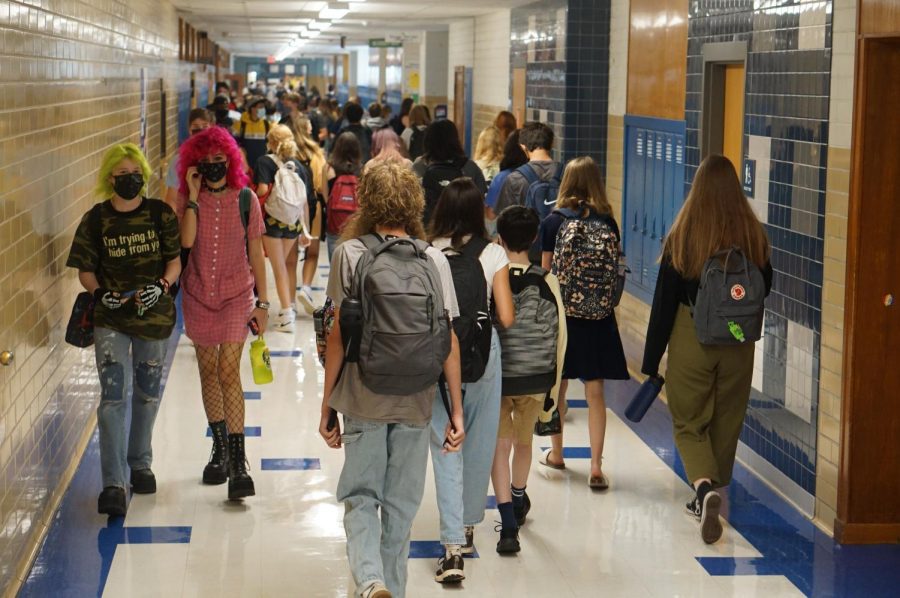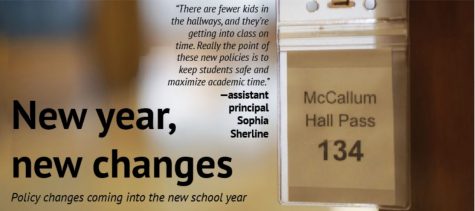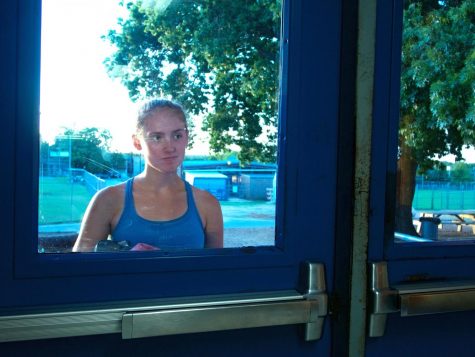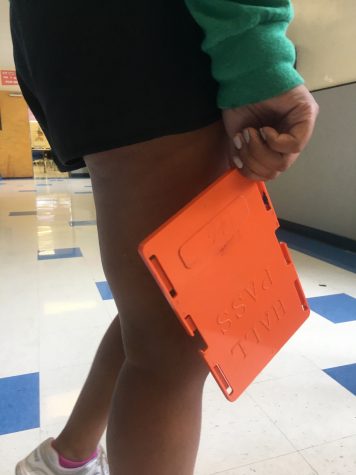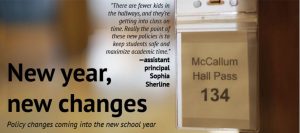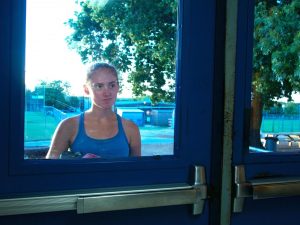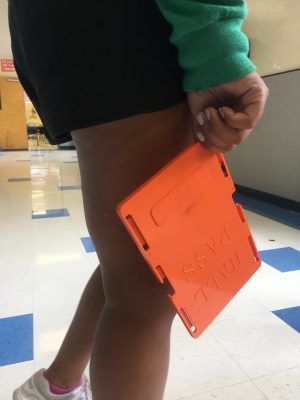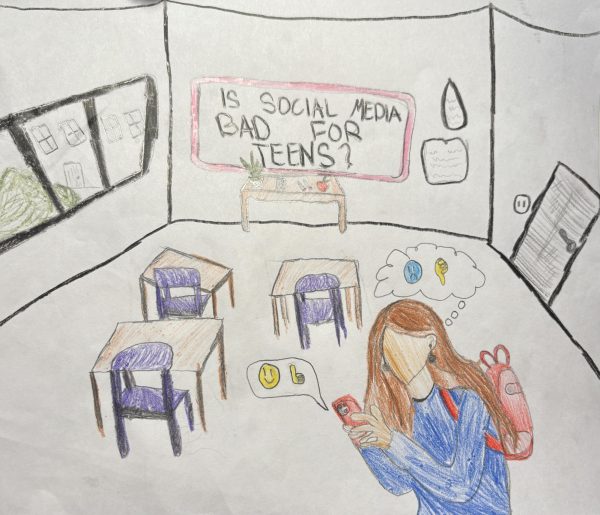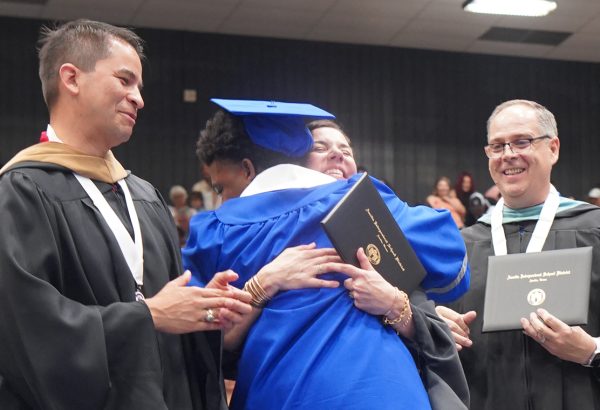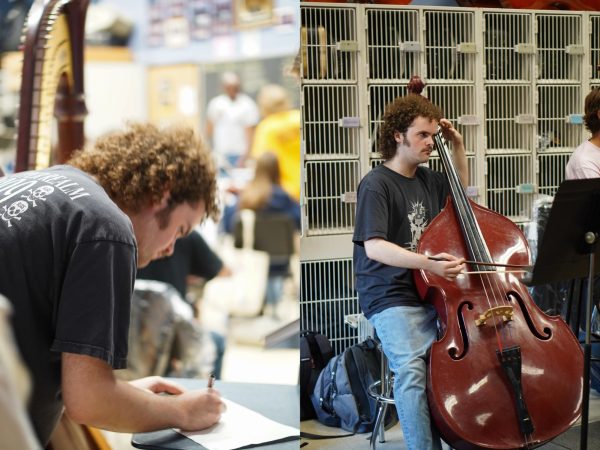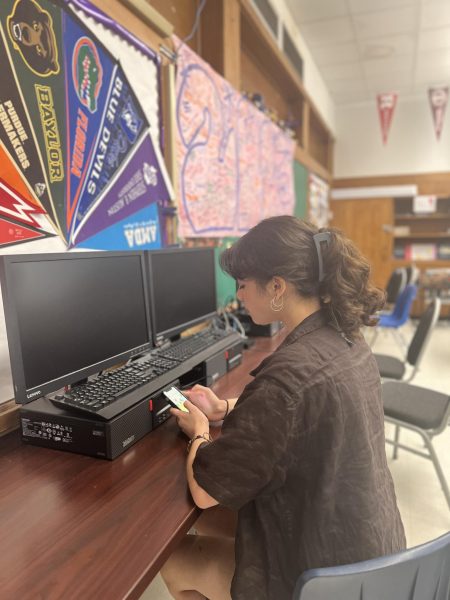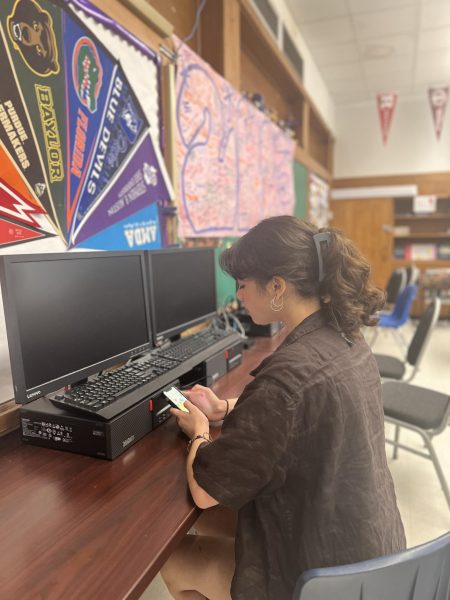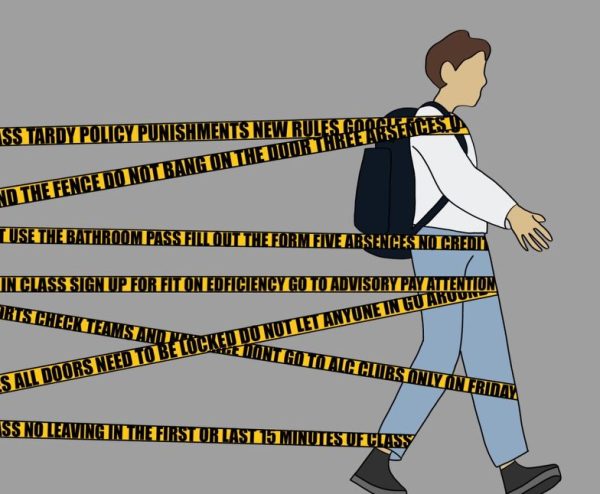You got a minute?
Administration should extend unrealistic six-minute passing period before it’s too late to help students, teachers
CROWDSOURCING: Arwen Frederiksen (far left) walks down the hallway before school starts to re-familiarize themselves with the campus. “[The hallways] were definitely busier than I expected,” Frederiksen said. After almost a year and a half of virtual learning, Frederiksen expresses how they are simply happy to be around other people once again. “I haven’t seen a bunch of my just school friends in forever,” Frederiksen said. “It was great.” Reporting by Alysa Spiro.
December 24, 2021
It’s 2:58. You glance down at your phone and stand up, sliding it into your pocket. You push your way through the crowd at the door, stepping into the hallway as the bell rings. 2:59—it’s go time. You snake your way through the hallway, trying to make it to the next class, praying you don’t trip or run into someone. You’re close to class, but you won’t make it in time. 3:05. That’s the second bell. You’re late.
Unfortunate or not, this scenario is now the reality for many students. It’s an issue that creates unnecessary stress on both students and teachers.
Students don’t have enough time to get from one end of the school to another. At a school like McCallum, many students must travel the length of the campus between classes. Passing periods should accommodate and support that long-distance journey.
Currently, six-minute passing periods hardly give students enough time to get from class to class, let alone accommodate the wide variety of necessary detours. If a student needs to use the restroom, ask their teacher a question or even be stopped in the hallway, the passing period doesn’t allow for a student to handle that business and still make it to class on time.
Furthermore, the short lunch of 40 minutes is less than in previous years and leaves students with less time to rest and regroup mentally before the second half of the day. With an extended passing period, students could have time to regroup before their next class and have a brain break without the pressure of not having enough time.
McCallum has consistently attempted to provide students with mental-health assistance, so why doesn’t the school simply build one of the simplest stress-reducing solutions into the students’ daily schedule?
n an Oct. 12 poll conducted on MacJournalism’s Instagram, 90% of the 752 students who responded said that passing periods were too short for students to get to class on time.
While it may seem like this is entirely a student issue, longer passing periods would benefit teachers as well. With longer passing periods, faculty can be allowed to prepare for classes, answer student questions and respond to emails. It also gives them time to socialize or complete work that cannot be done while they are busy teaching classes.
The solutions to this issue are numerous, and most of them will allow the school to maintain similar hours. Taking minimal time out of advisory or classes may allow a couple of minutes to re-allocated to passing periods.
McCallum could also return to the seven-minute passing period schedule that it had in 2019, which included the school day beginning at 9 a.m. as opposed to 9:05.
Because students and staff could benefit from time in between classes, the length of passing periods need to be extended. This extension will increase productivity throughout the school day and limit concerns students may have, while also changing how crowded the hallways have become.



